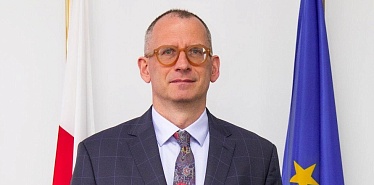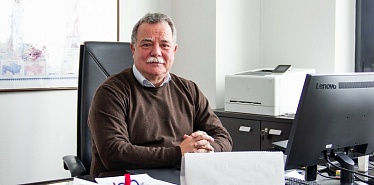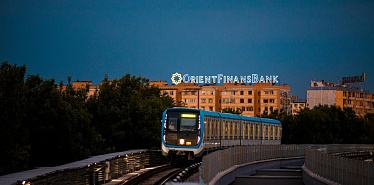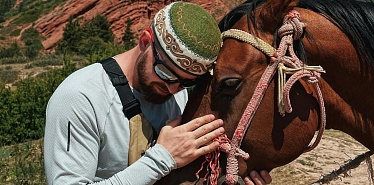On October 18-19, the international conference CONNECTED-2024, focused on envisioning the future, took place in Astana. We spoke with Professor of Global History at Oxford, Peter Frankopan, about his passion for the Great Silk Road, the significance of Central Asia in world history, as well as his impressions of Kazakhstan and the local culture.
Peter Frankopan, historian, writer, professor of Global History at Oxford University, Linkedin
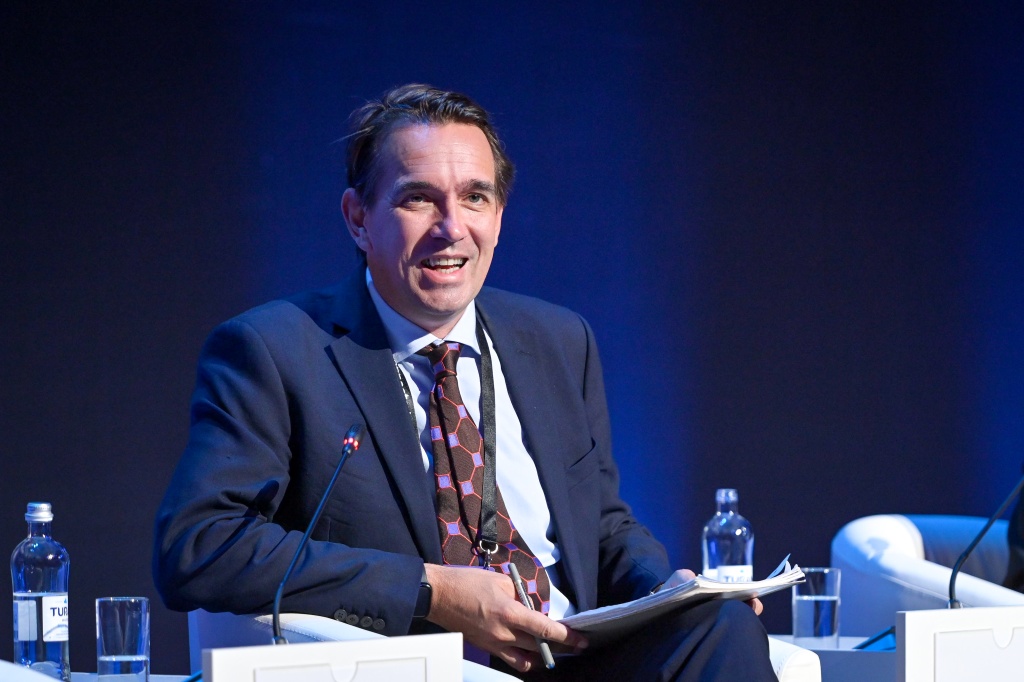
About myself
I'm a Global History professor at the University of Oxford and am also involved in Silk Road Studies at Cambridge University. My work focuses on the history of Eurasia, covering the vast region from the Pacific to the Mediterranean, including Africa.
The Silk Roads and Central Asia play a key role in my research. Over the last 10 years, I’ve also been studying contemporary issues like urban development in Asia and Central Asia, natural resources, water, climate change, and foreign affairs.
My fascination with the Silk Road began during my undergraduate studies at Cambridge, where I studied the Middle Ages from around 600s to the 1200s. The empires of Central Asia — like the Turk Empire, the Kipchaks, and the Mongol Empire — were incredibly significant. I realized that these regions had not only been crucial but also highly successful and influential in world history. Over the last 35 years, my passion for Central Asia, especially places like Kazakhstan and Uzbekistan, has only grown.
About modern relevance of the Silk Road
The term "Silk Road" was first coined about 200 years ago by German geographers to describe the trade routes connecting China, Central Asia, and India. The label arose from a need to explain these connections simply, with silk becoming a symbol of this vast network.
Silk was not only a valuable commodity used for clothing but also signified status and even served as a form of currency in some regions. Today, the concept of the Silk Road has expanded to represent connections spanning from Europe to Asia and Africa. These routes tied together places as far apart as Scandinavia and Central Asia, linking Viking trade with Samanids, for example.
It’s important to note that the Silk Road didn’t just involve the exchange of goods like silk or spices, but also the transmission of ideas, technologies, animals, and even genetic material. These exchanges shaped the world we know today.
About Central Asia
Central Asia has historically been a cradle of civilization, home to great cities where people developed advanced sciences, wrote poetry, and explored new ideas. The region served as a cultural and commercial hub, linking Europe, China, and India.
However, Central Asia's prominence declined when maritime trade routes gained importance. Transporting goods by sea became cheaper and more efficient than using overland caravans. Despite this, the region remained a crucial geopolitical arena, particularly in the 19th century when British Empire and the Russian Empire came into confrontation.
In the 21st century, Central Asia and its neighbors — Russia, China, Iran, Afghanistan, India, and Pakistan — are once again at the forefront of global attention. Kazakhstan, for example, faces complex issues related to its geographical position. But geography also presents opportunities for growth and development.
Kazakhstan is one of the largest countries in the world, rich in natural resources like oil, uranium, and rare earth elements — all of which are critical for the 21st century. One pressing issue for Kazakhstan’s future is achieving self-sufficiency and security.
I’ve been focusing a lot on Kazakhstan’s environmental issues, particularly water and air quality. Almaty, for example, suffers from high pollution levels.
Kazakhstan needs political stability, economic prosperity, and an equal society where meritocracy thrives. Open and transparent institutions, combined with a strong rule of law, will help the country realize its full potential in the coming years.
About people and traditions
It’s important to understand that Kazakhstan is a diverse country, with distinct regions like Karaganda, Semipalatinsk, Shymkent, Almaty, and Astana, each with its own unique geography and culture. Despite these differences, the sense of national identity unites the Kazakh people.
One thing I always enjoy when I visit Kazakhstan is immersing myself in the local culture. I love Kazakh music and always make sure to listen to the latest hits when I arrive. Kazakh hospitality is legendary, and I’ve had the privilege of experiencing it firsthand. The traditional cuisine, especially horse meat, is something the people take great pride in, and it has deep cultural significance.
Kazakhstan’s culinary traditions reflect its rich history, with food playing an important role in social gatherings and celebrations. One tip I’ve learned is to take only a small portion when you start a meal, as more food will inevitably follow! The preparation of horse meat, in particular, is a point of pride for many Kazakhs, and it’s an essential part of their identity.
I have quite a large collection of Kazakh hats at home, though I don’t wear them in public because I’m not Kazakh, and I don’t want people to misunderstand. However, I do sometimes wear them while working from home.
What I admire in Kazakh culture is that clothing represents respect and status, and people wear traditional garments with genuine pride. The hats, in particular, hold a lot of cultural significance. There's something especially beautiful about Kazakh clothing, for both men and women. The vibrant colors and craftsmanship are just as striking as the music I've been listening to while here.
The challenge, though, is that younger generations often want to dress like people around the world. There’s always this tension between honoring history and heritage while embracing modernity, and everyone has a different perspective on that.
About plans
I’m currently involved in several long-term research projects, including one focused on the impact of climate change on water resources in Central Asia. Water is a critical issue for Kazakhstan and the wider region, as climate change alters natural resources and creates new challenges.
Additionally, I’m researching the future of cities in Asia, as urbanization continues to reshape the continent. I also spend a lot of time teaching, which is something I truly enjoy. It’s a privilege to engage with students and contribute to their understanding of global history.









